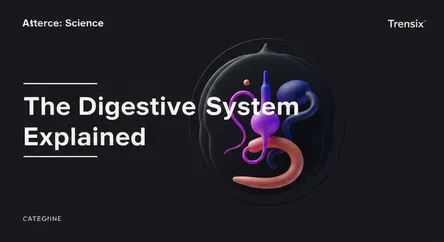Science
The Digestive System Explained

Discover the human digestive system, a complex network that breaks down food for energy and nutrients. Learn about its key organs and gut health.
What is it?
The digestive system is a complex network of organs responsible for converting food into the energy and nutrients your body needs to survive. This long, twisting tube, known as the gastrointestinal (GI) tract, starts at the mouth and ends at the anus. It includes the esophagus, stomach, small intestine, and large intestine. Accessory organs like the liver, pancreas, and gallbladder also play crucial roles by producing enzymes and bile to aid digestion. Through a combination of mechanical and chemical processes, this system breaks down everything you eat and drink, absorbing what is useful and expelling the waste.
Why is it trending?
Interest in the digestive system is surging due to a growing public focus on gut health and its connection to overall wellness. The concept of the gut microbiome—the trillions of bacteria living in our digestive tract—has entered mainstream conversation. People are increasingly aware that a healthy gut can influence everything from immunity and mood to skin health. This has fueled trends in probiotics, fermented foods, and diets specifically designed to support digestive function, making it a hot topic in health and science media.
How does it affect people?
A well-functioning digestive system is fundamental to daily life. It directly impacts energy levels, nutrient absorption, and immune response. When it's not working properly, people can experience uncomfortable symptoms like bloating, gas, indigestion, or constipation. Over time, poor digestive health can contribute to more serious conditions and nutritional deficiencies. Understanding and caring for your digestive system through diet and lifestyle choices is a key factor in maintaining long-term physical and mental well-being, as it forms the foundation of how our bodies are fueled and maintained.